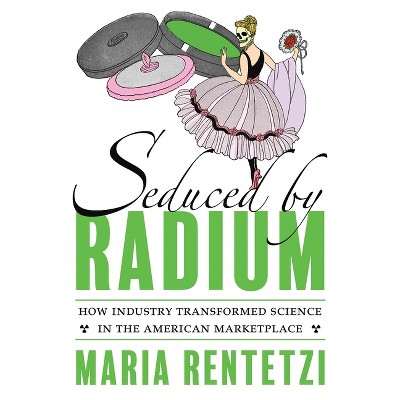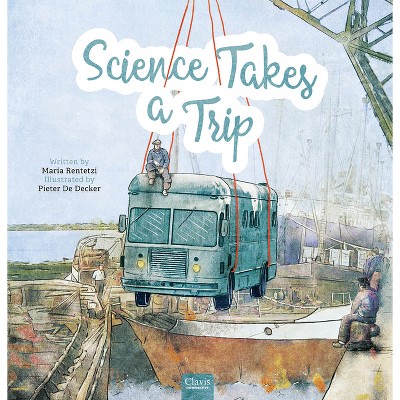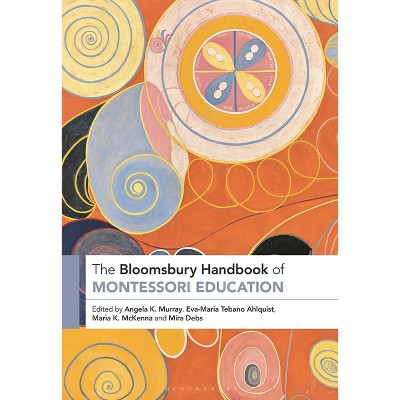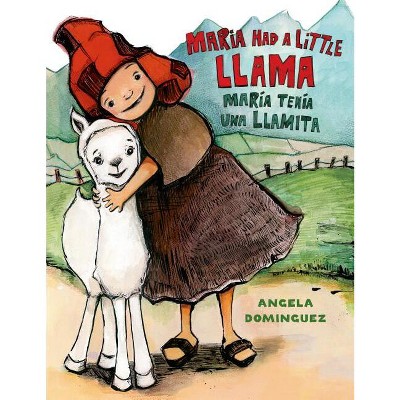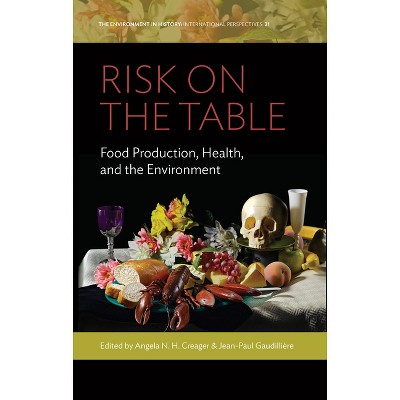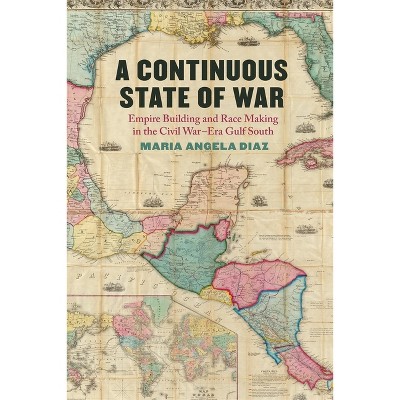Negotiating Radiation Protection in the Nuclear Age - by Maria Rentetzi & Angela N H Creager & M Susan Lindee (Hardcover)

$120.00 when purchased online
Target Online store #3991
About this item
Highlights
- The development of nuclear technologies for war, medicine, and energy production dramatically increased the number of people exposed to artificial radioactivity and raised new stakes and questions about protecting them.
- About the Author: Maria Rentetzi (Editor) Maria Rentetzi is professor and chair of Science, Technology and Gender Studies at Friedrich-Alexander-Universität Erlangen-Nürnberg.
- 336 Pages
- Science, History
Description
About the Book
An International Exploration of Radiation Risk and Protection Policies Since 1945Book Synopsis
The development of nuclear technologies for war, medicine, and energy production dramatically increased the number of people exposed to artificial radioactivity and raised new stakes and questions about protecting them. This volume examines how the establishment of standards and protocols for radiation protection was not only a technical process, but also the byproduct of extensive and ongoing negotiations among scientists, states, international bodies, lawyers, economists, companies, unions, and activists. Over time, exposed individuals--whether Japanese survivors, accident or fallout victims, atomic veterans, or workers--have leveraged their own experiences of radiation exposure to challenge powerful institutions and their standards. Contributors explore radiation risk and protection policies across the globe, from Japan to Canada, the United Kingdom to North Africa, and Spain to Greece. They excavate the legal, scientific, diplomatic, and personal challenges posed by radiation protection. Chapters move from the individual and institutional to the global level, arguing that issues of radiation exposure, like so many other forms of risk, are never merely personal but deeply, often invisibly, political and diplomatic.Review Quotes
Journeying across five continents and alighting at locations as diverse as mines and crash sites, meeting rooms and laboratories, blast zones and field stations, the contributors of Negotiating Radiation Protection develop truly transnational standpoints on the development of knowledges and standards surrounding radiation exposure. The volume showcases the situated, multi-sited, and contingent nature of this important history. Contributors establish the centrality of actors and agents including atomic veterans, miners, labor organizers, survivors, and scientists. Collectively, the authors offer insight into whose knowledge counted, and how standards were made and contested worldwide. The volume is essential reading for scholars and students in the history of biology and technology, as well as those interested in science and diplomacy and international standard-setting.--Mary Mitchell, New Jersey Institute of Technology
Spanning many domains, Negotiating Radiation Protection demonstrates how debates among stakeholders directly shape radiation protection standards and practices--and the lives of those exposed. It is a timely and groundbreaking volume destined to be a field-defining classic for understanding the origins and future of the global nuclear order.--Toshihiro Higuchi, Georgetown University
This collection of deeply researched essays is a timely reminder of the distributed and often intentionally downplayed risks, both past and present, of the nuclear world. The essays highlight the complex history of the safety standards for radiation protection, including the central role of the International Atomic Energy Agency in negotiating these standards, and the ongoing difficulties of holding the responsible authorities accountable for the harms to people and the environment.--Soraya de Chadarevian, University of California, Los Angeles
About the Author
Maria Rentetzi (Editor)Maria Rentetzi is professor and chair of Science, Technology and Gender Studies at Friedrich-Alexander-Universität Erlangen-Nürnberg. Her latest monograph is Seduced by Radium: How Industry Transformed Science in the American Marketplace. Angela N. H. Creager (Editor)
Angela N. H. Creager is the Thomas M. Siebel Professor in the History of Science at Princeton University. She is author of The Life of a Virus: Tobacco Mosaic Virus as an Experimental Model, 1930-1965 and Life Atomic: A History of Radioisotopes in Science and Medicine. M. Susan Lindee (Editor)
M. Susan Lindee is the Janice and Julian Bers Chair of the History and Sociology of Science at the University of Pennsylvania and the author of Rational Fog: Science and Technology in Modern War, Suffering Made Real, The DNA Mystique, and Moments of Truth in Genetic Medicine.
Dimensions (Overall): 9.0 Inches (H) x 6.0 Inches (W)
Suggested Age: 22 Years and Up
Sub-Genre: History
Genre: Science
Number of Pages: 336
Publisher: University of Pittsburgh Press
Format: Hardcover
Author: Maria Rentetzi & Angela N H Creager & M Susan Lindee
Language: English
Street Date: November 4, 2025
TCIN: 1002693765
UPC: 9780822948582
Item Number (DPCI): 247-21-1902
Origin: Made in the USA or Imported
If the item details above aren’t accurate or complete, we want to know about it.
Shipping details
Estimated ship dimensions: 1 inches length x 6 inches width x 9 inches height
Estimated ship weight: 1 pounds
We regret that this item cannot be shipped to PO Boxes.
This item cannot be shipped to the following locations: American Samoa (see also separate entry under AS), Guam (see also separate entry under GU), Northern Mariana Islands, Puerto Rico (see also separate entry under PR), United States Minor Outlying Islands, Virgin Islands, U.S., APO/FPO
Return details
This item can be returned to any Target store or Target.com.
This item must be returned within 90 days of the date it was purchased in store, shipped, delivered by a Shipt shopper, or made ready for pickup.
See the return policy for complete information.






